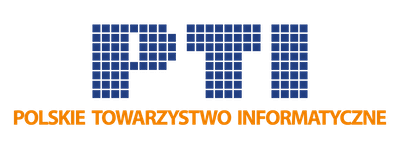
Learning and Development
Comment
Comment
In 2004, Google popularized the 80-20 rule, according to which technical employees should spend 20% of their time on development. With a 40-hour working week, this means at least 8 hours dedicated to learning or personal projects. This rule allowed employees of the giant to create products such as the translator and Gmail!
Unfortunately, only 11.3% of respondents achieve this level, and only 7.1% exceed it. Meanwhile, as many as 38.6% of people dedicate only up to 3 hours to development per week, and nearly 25% less than an hour! This may raise some concerns. Professional development is our daily duty towards ourselves and the largest investment in future, better earnings, and more interesting projects. It seems that for many people development is an ad-hoc event and usually comes down to defining developmental goals such as one conference or one training a year. Meanwhile, the approach to education should be more agile, and acquiring knowledge should take place in smaller doses, over a longer time.
For example, at testerzy.pl we build content and tools that enable treating development as a series of small knowledge-acquiring activities every day. Online courses, listening to an interesting industry podcast, watching presentations, reading valuable studies, or following industry news create the potential for learning and continuous development.
Confronting this data with the fact that the average Pole spends over 50 hours a week on the Internet, one can boldly say that these proportions are severely disturbed. Even if an employer does not support employees in self-education and does not allocate their working time for development, by reducing the number of hours spent surfing the net, we can gain additional time for self-education and acquiring new skills.

Comment
Customarily, there is a belief that IT specialists are mainly focused on technologies and solving technical problems and that they are not interested in managing people. However, it turns out that this is not entirely true. Many programmers, as they progress in their careers, start to develop team and leadership skills. Among the representatives of 3 out of the 9 discussed categories (Data Science, Programmers, Architects), responses slightly favor "yes". Testers, representatives of other specializations, and IT Administrators tend to lean towards "no", although the distribution of responses is quite balanced. On the other hand, Analysts, UX/UI specialists, and Project Managers/Product Owners decidedly lean towards the leadership path (and this result is probably the least surprising). At Netcompany, we offer career paths for people who want to develop both their technical skills and so-called soft skills. Managers and Managing Architects can try their hand at leading teams while remaining close to technology.






































Deciding to work in IT, one must be prepared for the need for continuous improvement, expanding knowledge, and ongoing learning. The galloping technological progress forces this need more than ever.
The form in which we acquire knowledge is very individual. The faster the acquired knowledge is used in practice, the more it will be consolidated. This especially applies to specialist and expert positions. In this case, support from team colleagues proves to be the most effective. However, this model has lost some of its value in the face of widespread online work, as nothing can replace a direct conversation, writing a "piece" of code together, or solving an architectural problem. However, to deepen this knowledge, one should use all available sources. The "hybrid model" works best, especially when the amount of available online training, podcasts, specialized portals, and webinars is really huge.
However, all of this requires proper focus on the material we are assimilating, regardless of its source and form. If we participate in online training while at the same time replying to emails or performing other tasks - they will not bring the expected effect (confirmed based on autopsy). Therefore - although it may sound "old school", I personally am a proponent of "stationary" training, which to some extent forces the appropriate level of engagement. Unfortunately, many training companies are moving away from this form.
Complementing all this are conferences, which besides the substantive knowledge presented by the speakers, are a great opportunity to meet practices and exchange knowledge with people from other industries.
IT managers should not be forgotten either. They too must constantly learn and develop. Here, in my opinion, nothing replaces practice, working under the supervision of a more experienced manager, conversation, support, and engagement. This especially applies to novice managers who previously played an expert role. In such a case, additional support is needed for such a person to "shed their expert robes" and become a manager.